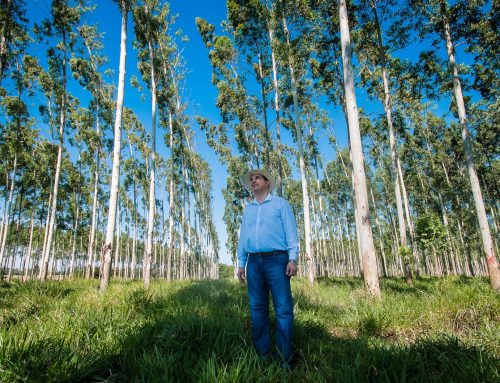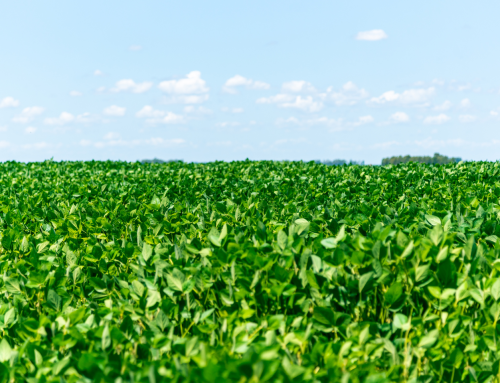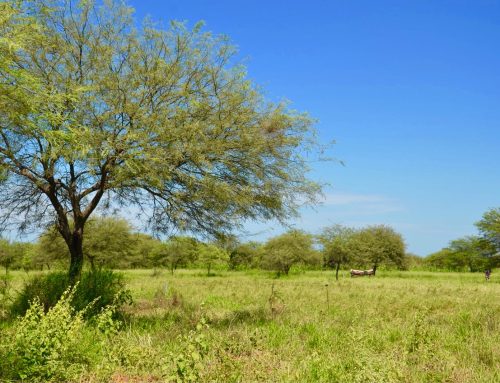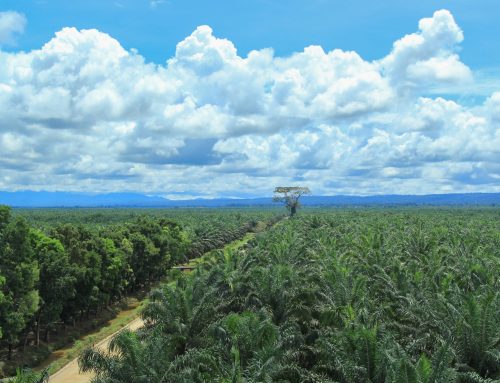The Food Systems Summit, to be held in September 2021, will be a turning point for food systems transformation, unleashing bold new actions, innovative solutions and strategies which will deliver progress across all of the Sustainable Development Goals. As UN Secretary General Antonio Guterres puts it, “Transforming food systems is crucial for delivering all the Sustainable Development Goals”.
In the run-up to the Summit, more than 100 National Food Systems Dialogues will take place, developing individual country responses to the challenges the Food Systems Summit is addressing. On 16th April, Good Growth Partnership Global Project Manager Pascale Bonzom addressed the Danish National Summit Dialogue and explained how GGP’s Integrated Approach would be a game-changer in meeting food systems challenges, particularly in deforestation-free value chains.
Noting that the Dialogue’s ambition was to “unleash the power of food to deliver progress on the Sustainable Development Goals”, she set out the reasons behind the push for deforestation-free value chains. Deforestation is the second largest contributor to climate change (behind the burning of fossil fuels) and the majority of deforestation and natural habitat conversion leading to biodiversity loss – around three-quarters – is linked to agricultural expansion. When looking more closely at tropical forests, 70% of deforestation is linked to the production of agricultural commodities including beef, soy, cocoa, coffee, and palm oil.
Focusing in on Denmark, the hosts of the Dialogue, she emphasized the problem of hidden, imported deforestation. “Of the 250,000 tons of palm oil that Denmark imports, the University of Copenhagen estimates that only 65% is certified as sustainable by the Round Table on Sustainable Palm Oil. And of the 1.7 billion tons of soy imported each year for animal feed, 71% comes from conventional production where there’s a high risk of deforestation and natural habitat conversion”, she said.
Next, she moved on to the solution – the Integrated Supply Chain Approach of the Good Growth Partnership:
“Attempts to curb deforestation from commodities production have so far mostly worked in silos – the production side, the demand side and finance working in their own specialist bubbles. Great work often, but disconnected. In the Good Growth Partnership, we have found that it is important to work on production, demand and finance together at the same time so that all key levers along commodity supply chains are pulled simultaneously to create more sustainable supply chains. This requires synchronizing the right policies and capabilities for sustainable production, while incentivizing it through market demand, responsible finance and attractive financial products.”
“This would be a game-changer – the Integrated Supply Chain Approach is multi-scale and relies on Multistakeholder Collaboration to achieve systemic change. GGP works with the on-the-surface and hidden complexities of commodity value chains, enabling stakeholders with different interests who all face a common sustainability problem to align and collectively learn, innovate and act together in a complex situation.”
After the speech, Dialogue delegates moved into collaborative online backcasting sessions to examine the ideas more deeply. Chaired by UNDP’s Pascal Fabie, participants included the Danish Ministry of Environment, WWF, Conservation International, Greenpeace, UNEP, Coop and Hamburg University of Technology. Opening with the question: How do we break silos? And how do we take a systems approach that synchronizes policies and capabilities for sustainable value chains, while incentivizing them through responsible market demand and an attractive financing model? participants contributed a rich variety of ideas and suggestions using an online Miro board.
Following the enthusiastic response to the GGP Integrated Supply Chain Approach, the proposal has been submitted to the Food Systems Summit Action Track 3 team for inclusion in the current Game Changer Solution on Transforming commodity supply chains to benefit people and to protect and restore nature. Action Track 3 is focused on production of food. This is the start of the process to gather all the best and most effective ideas for presentation at the Food System Summit itself.
Commenting on the Danish Summit Dialogue, Pascale Bonzom said “We would like to thank Denmark for giving us the opportunity to put this proposal forward and develop it with the participants. Denmark has a proud record of funding UNDP’s Innovation Facility since 2015, and the ideas that were produced in the Dialogue were certainly innovative and game-changing”.





